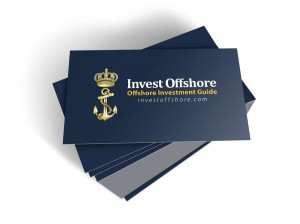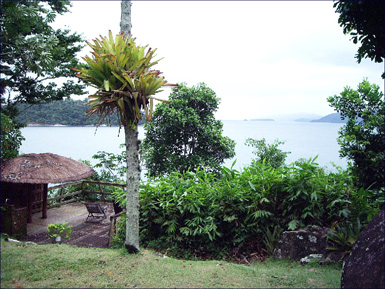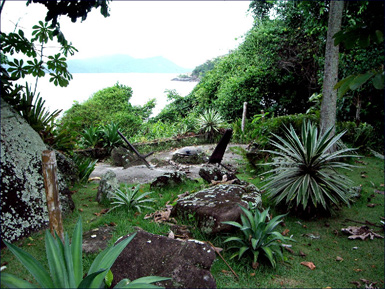| April 30, 2013 |
| Offshore Investment Guide |
|
Hi ,
There has never been a better time to invest offshore, or a more compelling reason to take action now. Every day we read about the Machiavellian mask1 of the G20 Governments, trying to ensnare their own citizens in a tangled web of ambiguous tax code. The Governments have played their cards and now it's time for you to play yours.
The correct method for geo-diversification (offshore investment) was never as clearly laid-out as it is now. There's a simple, straight-forward strategy, to protect yourself from the desperate attempts of bankrupt and broke governments, to strip away as much of your wealth as they possibly can. Allow us to help you, help yourself, to invest offshore.
1Machiavellianism (or machiavellian mask) is, according to the Oxford English Dictionary, "the employment of cunning and duplicity in statecraft or in general conduct".
Aaron A Day

|
| U.S. Treasury Machiavellian Tax Code |
| This new PFIC problem is an inch wide and a mile deep
Passive Foreign Investment Company (PFIC) rules are triggered in a typical Non-Resident Alien (NRA) structure when investments are consolidated in a holding company or foreign funds are part of the investment portfolio, and one or more beneficiaries are U.S. persons. While NRA is alive and treated as the owner of the PFIC, there is no problem, but on his death, indirect ownership rules may apply to treat U.S. beneficiaries as owners of PFICs.
What is a PFIC?
A PFIC is a foreign entity that is treated as a corporation for U.S. tax purposes and generates primarily passive investment income, or holds primarily passive assets
Passive income is defined by reference to foreign personal holding company income, which includes investment income such as dividends, interest and gains and there's no minimum threshold of U.S. ownership or control.
A foreign entity is classified as a corporation under Treasury regulations if one of the following is true:
- It is a "per se" corporation
- It elected to be treated as a corporation by filing Form 8832 with the IRS
- It did not make an election and under the law where the entity is formed, no shareholder or member has personal liability for the debts or obligations of the entity
A foreign entity that is classified as a corporation for U.S. tax purposes will be a PFIC if 75% or more of its gross income for the taxable year is passive income, or 50% or more of the average percentage of its assets are held for the production of passive income. There is a 25% subsidiary look-through rule. If a foreign corporation is both a PFIC and CFC, the PFIC rules take precedence with respect to a 10% U.S. shareholder.
Ownership of PFIC through an Estate or Trust
Stock owned directly or indirectly by or for an estate or trust is considered as being owned "proportionately" by the U.S. beneficiaries. Prop. Regs. apply facts and circumstances test to determine "proportionality" but reserve on substantive guidance. TAM 200733024: absence of final or temporary regulations do not prevent PFIC rules from applying.
Bottom Line: The reporting of a PFIC is so complicated that anyone is stupid who thinks they know how to do it without a specifically experienced Attorney. Seriously, recently a leading expert said "it is an inch wide and a mile deep" problem.
During a recent conference related to the PFIC problem the attorneys presenters stated that the IRS calls it the "PFIC taint". Which means that they consider that if you have a PFIC then you
are guilty of attempted tax evasion and therefore you must file the paperwork to prove that you are not guilty. The IRS considers you guilty and you must prove that you are not guilty, they do not need to prove you are guilty!
A Trust, IBC, LLC, etc etc are 99.9% of the time a PFIC, which means that if people want to set up their offshore trust, IBC etc they are receiving either bad advice or the person who has provided them that advice sees nothing but $ signs. For example a U.K. 101% life policy is not a PFIC but everything inside of it is a PFIC. Which means if there are, for example, 25 unit trusts inside his Personal Portfolio Bond-
which is what the British call them, then he has 25 PFIC, 25 Filings and he is guilty until he proves he is innocent! IBC and LLC are most certainly a PFIC and a Trust is a PFIC unless it is sitting in only cash without interest! And I wouldn't even risk that!
With the new rules, when Foreign person dies with US beneficiaries, the beneficiaries end up holding PFIC's but take that one "step" further, any foreign person becomes resident in the USA and his assets end up the same as if he died and had USA beneficiaries. What was not a PFIC when he was non-resident USA is now a PFIC.
Now the Life insurance salesman will want to sell this foreign person a Private placement life insurance policy before he becomes USA resident but 1) can he qualify for life insurance health wise 2) IT IS EXPENSIVE TO BUY ALL OF THAT LIFE INSURANCE IF YOU DONT NEED IT AS A DEATH BENEFIT 3) this is the big issue and in fact the only issue these people normally are sold by some guy selling offshore private placement life insurance and that policy needs to be US compliant (US compliant life insurance policies are regulated, registered, recognized by a US State,,,,,get it? Offshore policy compliant? Who is going to validate, verify compliant? And the USA State regulated policy wont take the foreign assets, which means he would need to sell all of those assets and place the cash in the policy which means that if he has cash he does not need the policy avoid the PFIC solution. Therefore, no solution only a commission for the salesman.
There is no compliant regulator, register, nor any recognized list are otherwise verifier of tax compliant life or annuity policies offshore, which means a good idea is not possible. Yes tons of this tainted life and annuity stuff has been sold prior to FATCA because the risk was just not there- because nobody was looking- but now due to FATCA the offshore life insurance company is reporting their USA persons and beneficiary and now compliance is the issue for both the policy holder and the beneficiary! And because it is "non-compliant" then holding within that policy are all PFIC's! Taxes, penalty, interest charges and attorney fees.
One more time ...Regulated, Registered, Recognized .........there is no other (or better) choice than RAPS! (Regulator Asset Protection Structure).
|
| Oil stocks should be traded. Don't buy and hold |
We have published articles over the last few weeks to help investors understand what the global economic drivers will be over the next ten years. The three drivers were:
- Growth of the world population
- Global Debt
- Monetary Easing & Inflation
In our long-term investment themes to generate wealth over the next ten years, we have debated the relevance to include the energy sector and in particular, the oil sector as a theme. Healthcare and technology are obvious growth sectors for the years to come, but what about oil? Will fracking bring so much supply that it will negatively affect price in the future? Can Natural Gas replace some of the demand? Are oil producers a long-term investment or should they be traded?
Future demand for Crude Oil:
World oil demand has grown considerably in the past decade, rising from about 76 million barrels per day (mbpd) in 1999 to around 90 mbpd to date. Increase in world population should translate into economic growth. This should require an increase in the quantity of energy needed to power cars, trucks, trains and planes to transport people and goods around the planet. However, demand may not continue to increase at the same rhythm as we experienced in the past.
First, technology continues to produce engines requiring less fuel. At the same time, natural gas and electricity are gradually taking market share away from the traditional gasoline powered vehicle. According to Seth Kleinman, head of energy strategy at Citigroup, cheaper substitutes and improvements in fuel efficiency will reduce demand growth and bring lower oil prices going forward. He is predicting that Brent prices will range between US$80-90 a barrel at the end of the decade. Second, the accounting firm PWC calculates that shale oil production could reach up to 14 million barrels a day (ten times its present level) as more discoveries are made worldwide. This would send oil price tumbling down by 25 to 40%.
If Kleinman and PwC are right, this would mean that the growth in the oil sector will be limited, to say the least, over the next ten years. This would also be bullish for the economy, as a drop in the price of gasoline would translate into an increase in consumer discretionary spending. We should note that we would be surprised to see the price of oil drop below $70 going forward as break even points for fracking and oil sands extraction hover around $60 per barrel.
How to profit from the Energy sector
If oil producers are losing their appeal as a buy and hold, does that mean that they have no room within your portfolio? Not necessarily. We like to say that oil price is its own worst enemy. Buy oil companies when the price of oil is in the seventies and be patient. As the price of oil increases, and passes the $90 dollar mark, put a stop loss at a 10% profit on your position. Move the stop loss higher as the price continues to increase. When prices move north of $100, gasoline at the pump will reach a point where the US consumer will start to reduce their spending, contracting the economy and sending the price of oil lower. This should trigger your stop loss and leave you with an interesting profit. Wait and repeat.
In a matter of fact, Gasoline prices can be used as a leading indicator of the US economy. As the price at the pump increases, and continues to stay high for a few months, US consumers reduce their spending and this weakens the economy.
Some will argue that it is not the price of gasoline but the monetary policy that would be responsible for the price at the pump and the recession. This is all simply semantics.
What we need to know is that an increase in the price of gasoline is usually followed by an economic slow down. Therefore, be careful out there, as gasoline prices are getting close to historical high...
Conclusion: Don't buy and hold oil or oil related stocks. Trade them.
For more information on how Clover Asset Management can help grow your wealth please contact us at +1 (345)743-6639 or email us at forwardthinking@clover.ky
|
| Verredus Managed Receivables |

Capital Growth GBP Class
Key Features
Verredus aims to deliver verifiable return for investors and is specifically designed for income seeking or low risk investors.
The Verredus Managed Receivable Capital Growth GBP fund sits between Money Market and traditional Bond funds and offers clients access to the short dated receivables market in order to provide high levels of income and low volatility without exposing investors to sub investment grade credit risk.
Key Features
- 7% to 8% target return after fees
- Monthly dealing open ended fund
- High levels of capital security with insurance protection
- Ultra low levels of capital volatility
- Does not use Financial derivatives to enhance return
- No leverage
- Currency exposure mitigated within Verredus
Verredus has two fee options:
Deferred Marketing Fee
Unit Creation Fee: 0.5%
Allocation: 99.5%
Initial Commission 3.0%
Trail per annum 0.50%
Subject to Exit Penalty
Initial Placement Fee
Unit Creation Fee: 0.5%
Initial Fee Charge: 0 - 4.5%
Allocation: 95 - 99.5%
Trail per annum 0.75%
No Exit Penalty
The Verredus brochure, available upon request.
|
| Tropical Paradise Waterfront Home
|
Angra dos Reis - Rio de Janeiro - Brazil
Private, gated community home. For Sale: $299,000





A US & Brazilian Citizen, living in the San Francisco Bay area, has large house with stunning sea view in "Angra dos Reis", a prime vacation area in Brazil situated approximately 70 miles South of Rio de Janeiro (http://www.angra-dos-reis.com/ingles/index.htm). The property is in a gated, private and small community (condominium) with security, a private beach, and common areas cleaning and gardening services. The house, needs some renovation, furniture and appliances.
All documented, clear and subject to verification, appraisals, etc. Property documents, additional photos, house blue prints, etc. are all also available to interested parties.
Request more information about Brazil properties.
|
| Offshore Gold Storage |
|
You can store your metals with:
- VIA MAT - in vaults in Hong Kong, Switzerland and the UK.
- Brink's - in vaults in Toronto and Singapore.
- Rhenus - in a vault at Zurich Airport in Switzerland.
- G4S - in a vault in Hong Kong.

Ready to invest offshore in precious metals? click here
| |
|












 Home Page
Home Page